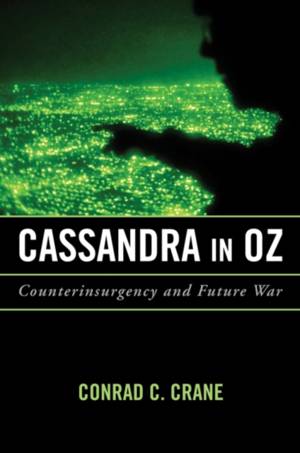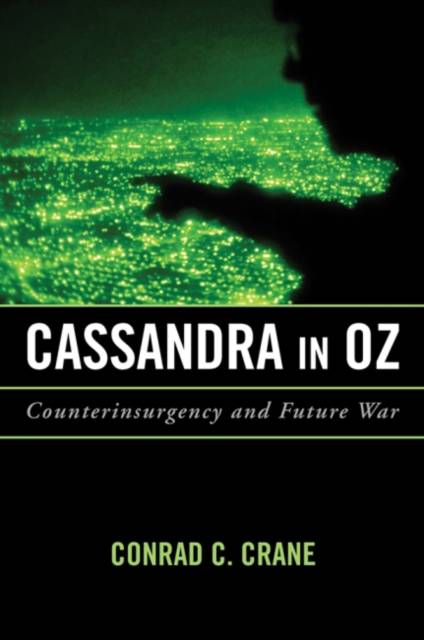
- Afhalen na 1 uur in een winkel met voorraad
- Gratis thuislevering in België vanaf € 30
- Ruim aanbod met 7 miljoen producten
- Afhalen na 1 uur in een winkel met voorraad
- Gratis thuislevering in België vanaf € 30
- Ruim aanbod met 7 miljoen producten
Zoeken
Omschrijving
When Conrad Crane retired from active duty to become a research professor, he never expected to become a modern Cassandra, fated to tell truth to power without being heeded. After the world transformed on 9/11, he warned the Army that it was not prepared to execute stability operations, counterinsurgency, and the eventual reconstruction of Iraq. Crane's work attracted the attention of Generals David Petraeus and James Mattis, and he soon found himself in charge of a team tasked with creating the groundbreaking Field Manual 3-24/Marine Corps Warfighting Publication 3-33.5 Counterinsurgency, the very counterinsurgency doctrine he had pleaded for. A unique blend of traditional and modern theory, this manual would prove to be essential to the success of the Surge in Iraq that changed the course of the war. Crane's account of the creation and implementation of the manual addresses its many criticisms, details what went wrong in Iraq, and explains how the new doctrine was never properly applied in Afghanistan. From the debates over the content to the ways it was used in the field, Cassandra in Oz covers lessons that should be gleaned from years of global war and displays the American military as a learning organization at its best.
Specificaties
Betrokkenen
- Auteur(s):
- Uitgeverij:
Inhoud
- Aantal bladzijden:
- 320
- Taal:
- Engels
- Reeks:
Eigenschappen
- Productcode (EAN):
- 9781682470077
- Verschijningsdatum:
- 15/09/2016
- Uitvoering:
- Hardcover
- Formaat:
- Genaaid
- Afmetingen:
- 160 mm x 236 mm
- Gewicht:
- 703 g

Alleen bij Standaard Boekhandel
+ 94 punten op je klantenkaart van Standaard Boekhandel
Beoordelingen
We publiceren alleen reviews die voldoen aan de voorwaarden voor reviews. Bekijk onze voorwaarden voor reviews.











